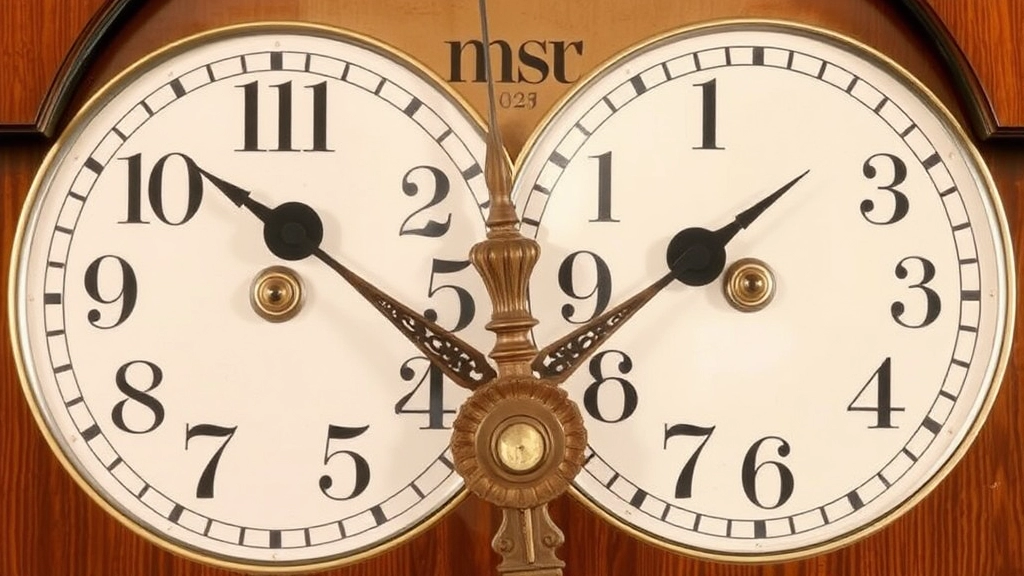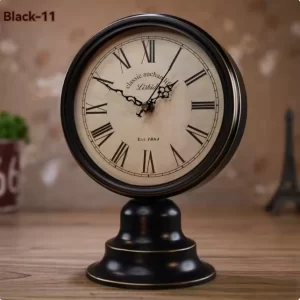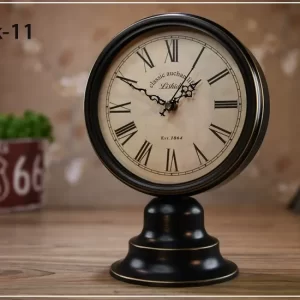What is the age of an antique clock?
Mantle Clock Studio
The search for antique clocks can be daunting and expensive, but the value of these timeless treasures goes far beyond price and rarity. Antique clocks are rich in history, craftsmanship and character, making them more than just timekeepers. To be an antique clock, it must be at least 100 years old. If the clock is younger, usually between 20-99 years old, it is considered vintage.
In this article, we’ll explore the age, rarity, and basic characteristics of antique clocks to guide you in your search for the perfect timepiece and help you understand their value.
Types of Clocks
Watch World offers a wide range of clocks and watches to suit every style and need. Whether it’s a classic pocket watch or a high-tech digital clock, modern technology has opened up endless options. However, antique and vintage clocks have a unique appeal that modern design cannot replace.
Popular types of clocks:
- Analog clocks
- Digital clocks
- Vintage desk clocks
- Pendulum clocks
- Nautical and weather clocks
- Mantel Clocks
- Cuckoo clocks
- Art Deco Clocks
- Battery operated clocks
Antique clocks, such as grandfather clocks, pendulum clocks, and Art Deco designs, are among the most popular types of clocks because of their superb craftsmanship, fine appearance, and historical significance.
The age and rarity of antique desk clocks
Clockmaking is a craft that spans continents, eras and empires. For collectors, antique clocks are a unique gateway to history, ranging from pendulum clocks invented by the Dutch in the 17th century to traditional Japanese clocks from the Edo period.
While age and rarity often go hand in hand, the two are not always the same. An antique is defined as an item that is collectible because of its age, usually more than 100 years. However, rarity depends on factors such as limited production, unique design or historical importance.
For example, a clock that is 100-200 years old may also be very rare due to the limited number in existence. Also, the craftsmanship and materials used at the time make it unique.
Antique Mantel Clocks Buying Guide
If you’re looking to invest in an antique mantelpiece clock, it’s crucial to understand what makes the clock valuable. Here are three important tips for finding a high-quality antique clock:
-
Research thoroughly
- Familiarize yourself with the logos of reputable makers, the characteristics of specific eras, and the types of materials used (e.g., veneers or specific types of wood).
- Explore online resources and compare different options to better understand the market and make an informed decision.
-
Buying in Person
- If possible, view the clock in person to check its condition, craftsmanship and authenticity. Damage or hidden problems can affect the valuation of a timepiece, so it’s best not to rely solely on online listings.
- Consult a professional watchmaker as they are better at valuing antique clocks than the average antique appraiser.
-
Stay patient
- The antique market is highly competitive and finding the perfect timepiece takes time. Patience is key, as it is worth waiting for the right timepiece.
-
Avoid buying items in poor condition
- Beware of clocks that have serious damage or use non-original parts. Watches that have been restored using non-original materials can reduce their value.
What makes an antique clock?
To be an antique clock, it must be at least 100 years old. Anything younger is considered a vintage clock, usually between 20-99 years old. While both antique and vintage clocks are attractive, antique clocks are prized for their historical value and craftsmanship.
Are antique clocks worth investing in?
In the world of collectibles, antique clocks are always a stable and profitable investment. While younger collectors may not prioritize these clocks, seasoned watch enthusiasts value them highly for their historical significance, rarity and intricate designs.
When investing in antique clocks, it is important to consider the following factors:
- Importance of the clock – the clock’s place in the history of timepieces.
- Quality – the craftsmanship and materials used.
- Rarity – limited production or unique features.
Keep in mind that many antique clocks are considered “wasted assets” due to their limited lifespan, often only lasting about 50 years without proper maintenance. However, with careful maintenance, these treasures can last much longer and retain their value.
-
Elegant Black Mantel Clock for Living Room – Silent & Stylish
Original price was: $180.00.$170.00Current price is: $170.00.
Conclusion
Antique clocks are more than just practical timepieces; they are windows into history, art and craftsmanship. Whether you are a seasoned collector or just starting out in the world of horology, taking the time to research, examine, and appreciate antique clocks will ensure that you find the piece you desire.
MantelClock Studio will guide you through the entire process, allowing you to appreciate the beauty and timeless elegance of antique clocks.





